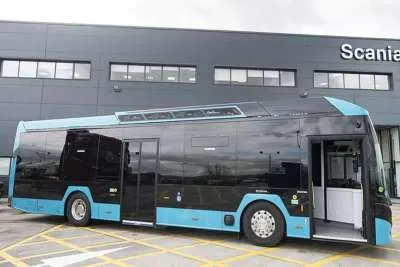The intersection of business and cars in the Canary Islands: How vehicles drive economic growth
- 04-02-2025
- Business
- collaborative post
- Photo Credit: Better Bid
In today's fast-paced world, businesses and automobiles are more intertwined than ever. Cars in the Canary Islands play a crucial role in business operations, influencing everything from logistics to customer service.
Whether it's a multinational corporation managing a fleet or a small business owner relying on a personal vehicle for deliveries, the automotive industry is a cornerstone of modern commerce.
Understanding the significance of cars in the business world can help companies optimise operations and maximise profitability.
The Role of Cars in Business Operations in the Canary Islands
Automobiles are indispensable in various business sectors, from transportation and logistics to service-based industries. The efficiency and reliability of vehicles directly impact business performance, affecting delivery timelines, operational costs, and customer satisfaction.
For instance, ridesharing companies such as Uber and Lyft have revolutionised the transportation sector, creating new business models centred entirely around vehicle usage.
Additionally, businesses looking to invest in company vehicles must consider factors such as fuel efficiency, maintenance costs, and accident history before making a purchase. Platforms like https://abetter.bid/ provide access to vehicle auctions, allowing companies to find reliable used cars with detailed histories that suit their operational needs.
Automotive Industry as an Economic Driver
The automotive industry is a key player in both global and domestic economies. It creates jobs, inspires innovation, and induces technological advancement. Mass car manufacturers such as Toyota, Ford, and Tesla consistently challenge traditional thinking in car development, with car development, car security, and fuel efficiency improvements, and EV technology improvements.
Moreover, the automotive industry employs a colossal value chain, such as raw materials providers, dealers, and service shops. All these make a powerful network, generating jobs and driving economic growth for millions of workers worldwide. Electric cars and autonomous technology have gone on to redefine the industry, creating new avenues for business and new challenges.
The Impact of Car Ownership on SMEs
For a small business, a car can make a significant impact. It brings them independence, helps in transporting goods, and generates awareness about a brand name. All delivery companies, mobile operations (such as pet grooming and car washing), and food trucks depend on cars in an effective manner.
But with a business car comes a price tag, including maintenance, obeying state laws and insuring it. Canary Islands Business owners must calculate both the expenses and benefits of purchasing a car first. Leasing is a viable option for companies wishing to have a car but not necessarily purchase one outright.
Fleet management and cost savings
For larger companies, car management is an important part of operations. Organisations with a range of cars must utilise techniques for conserving fuel, car performance tracking, and securing drivers. GPS tracking and telematics technology allow companies to monitor car use, conserve fuel, and maximise overall efficiency.
Also, proper maintenance for a vehicle keeps expenses down and extends a fleet's life span. Having a routine of scheduled inspections and employing sophisticated fleet management software can allow companies to maximise transportation requirements and save long-term dollars.
The development of Electric Vehicles in Business in the Canary Islands
Electric cars have become a significant issue for companies globally, with a move towards electrified cars (ECs). ECs have numerous benefits, such as reduced operational expenses, less greenhouse gas emissions, and incentives from governments. Most companies have incorporated ECs in their fleets in a move towards becoming environmentally friendly and cutting down fuel expenses.
Electric car companies Tesla, Rivian, and a range of car companies have gotten a head start in commercial use, with cars designed specifically for companies. Amazon delivery companies have begun including electric vans in operations, and a larger transition can follow soon enough.
The future of cars and business
The future of cars and of business in general is transforming at a breakneck speed with emerging technology in artificial intelligence, automation, and sustainability. Autonomous cars, for one, can have a significant impact on logistics with lowered labour costs and heightened efficiency. Autonomous delivery companies can transform industries such as e-business and even medical care.
In addition, shared mobility offerings are becoming increasingly prevalent, and companies can save expenses through car-share platforms over having a pool of cars under direct ownership. All these new trends will redefine companies' approaches to car management and transportation in future years.
Conclusion
The synergy between automobiles and business in the Canary Islands is paramount for efficiency and development in terms of the economy. In terms of car ownership, new EV technology, and fleet management, companies must adapt to trends in an industry in a bid to survive and become competitive. By leveraging technological advancement in automobiles, cutting down on expenses, and embracing sustainability, companies can maximize operations and gain long-term success.
As the planet heads towards a future with smarter and cleaner transportation, companies that position themselves at the cutting edge will gain a competitive edge. As a startup in search of a dependable car, a corporation with a large fleet, or anywhere in between, knowing about the business car nexus is key to successful expansion.



























































